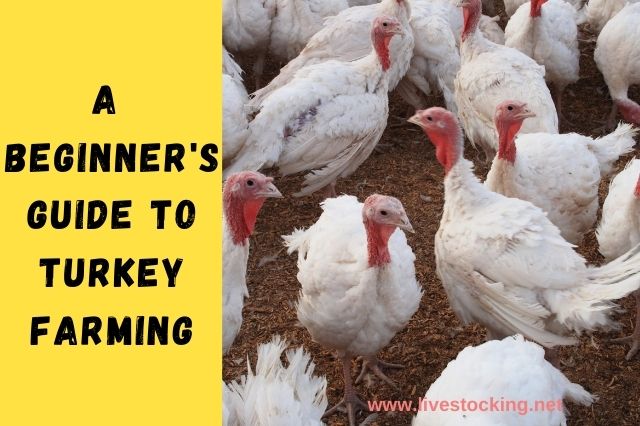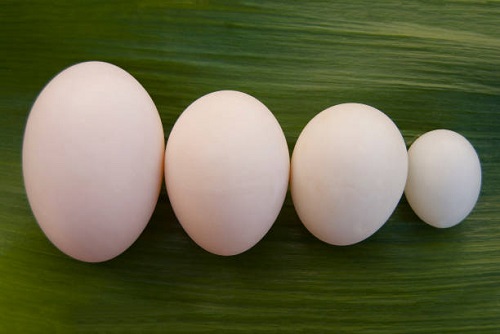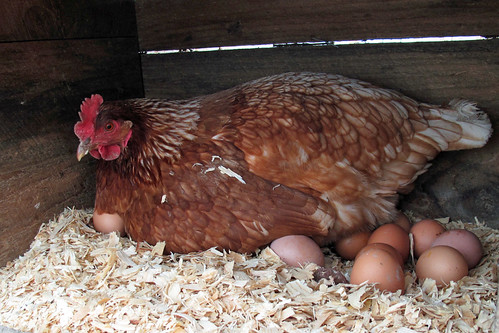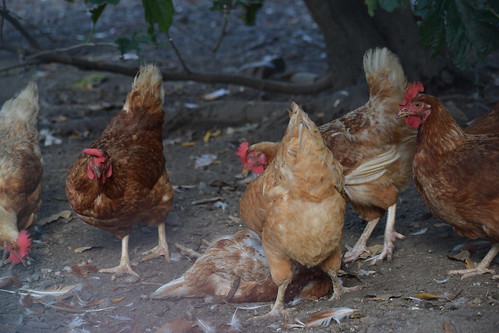Turkey farming is the process of raising turkeys for the purpose of producing meat or eggs for food or money. Turkey, chicken, guinea fowl, duck and quail are all domestic birds that nutritionally and economically contribute to any country.
Turkeys are kept or reared for meat purposes. Their meat is recognized as the leanest of all poultry species. Additionally, they are consumed by almost every country across the globe. Turkey farming is popular in countries like the USA, Canada, France, Germany, Italy, UK and Netherlands. This post is a beginner guide for those who want to start turkey farming.
The scientific name of Turkey is Meleagris gallopavo, and it is a large gallinaceous bird that is native to North America but domesticated in Europe. The breeds of turkey include:
- Beltsville Small White
- Black Turkey
- Blue Slate Turkey
- Bourbon Reds Turkey
- Broad Breasted White Turkey
- Midget White Turkey
- Narragansett Turkey
- Standard Bronze Turkey
- Royal Palm Turkey
- White Holland Turkey
Terminologies in Turkey Farming
- Tom: Matured male turkey
- Hen: Matured female turkey
- Poult: Very young turkey
- Snood or Dewbill: Fleshy protuberance close to the base of the beck
- Caruncles: Fleshy protuberance on a turkey’s head and neck. It is usually red or pink in color.
- Dewlap: Large flap skin seen immediately below the chin
- Beard: Tuft of hair attached located in the upper chest region
- Strut: Male turkey’s mating behavior
Other important information about turkeys is explained below:
- De-beaking. This is the reduction of the beak’s length in order to prevent cannibalism and feather picking. It is carried out at 4-5 weeks of age. While debeaking, the tool must be very hot and should not be too close to the nostrils.
- De-snooding. This is the removal of the snood or dewbill in order to prevent the head from getting injured while fighting or picking. Pressing the snood at a day old using the thumbnail or finger would remove it. A sharp scissor can be used to cut off the snood when the poult is 3 weeks old.
- De-toeing or toe clipping. This is the removal of the toenail and it is usually done at a day old.
A sexually mature female turkey should start laying in the 30th week of age and the egg-laying period lasts for 24 weeks starting from the day the first egg is laid. Under proper artificial lighting and feeding management, a female turkey will be laying around 60-100 eggs every year. Turkeys usually lay their eggs in the afternoon, and their eggs are tinted and weigh around 85 grams. The eggs are also pointed at one end with a very strong shell.
Turkey Colors
The varieties of turkeys are categorized under domestic turkeys and wild turkeys. While both domestic and wild turkeys share some common characteristics, they still express some differences. One major difference between the two types of turkey is that domestic turkeys cannot fly while wild turkeys can fly.
Apart from the ability to fly, domestic and wild turkeys can be identified by their feather colors. Turkey colors help one to guess the type of turkey and breed. The importance of turkey colors cannot be farfetched. Some people use the feathers for decorations and boa and shawl makers are concerned about the colors of the turkey feathers.
The following are common turkey colors.
- White
- Black
- Red
- Gray
- Blue
- Bronze
- Copper
- Bright red
Management Practices in Turkey Farming
Incubation
A fertile turkey egg has an incubation period of 28 days. The eggs can be incubated in two different ways which are:
- Natural Incubation
- Artificial Incubation
Natural Incubation
Turkeys normally can brood on their eggs and they can hatch between 10-15 fertile eggs. To achieve a higher hatchability rate, only clean, well-formed eggs should be set for incubation.
Artificial Incubation
Under this method of incubation, an incubator is used in hatching the eggs. The temperature and relative humidity in the setter and hatcher are as follows:
- Setter: 99.5oF temperature and 63% humidity
- Hatcher: 99.5oF and 85-90% humidity
The eggs should be turned hourly every day and their collection should be done frequently in order to avoid breakage and soiling and to improve hatchability.
Brooding in Turkey Production
Day-old Poults are brooded for 4 weeks or to about 6 weeks in the cold period. A gas brooder or infra-red bulb could be used as a source of heat or the traditional brooding systems such as coal stoves could be adopted. Click here for more information on brooding turkey poults
Turkeys are not the best starters in their life and will really need some tender loving care to get them safely through the first four weeks of life. The average mortality rate is 6-10% during this period. Young poults by nature are reluctant to eat and drink in the first few days of life, primarily because of bad eyesight and nervousness. Hence, they have to be force-fed.
Floor, Feeder and Waterer Space Requirement of Turkeys
| Age | Floor Space (ft2) | Feeder space (m3) | Waterer space (m3) |
|---|---|---|---|
| 0-4 weeks | 1.25 | 2.5 | 2.5 |
| 5-16 weeks | 2.5 | 5 | 2.5 |
| 16-29 weeks | 4 | 6.5 | 2.5 |
| Adult/Breeder | 5 | 7.5 | 2.5 |
- Turkeys can be fed with pelleted feeds or mash.
- They need higher energy, protein, mineral, and vitamins than chickens.
- Male turkeys are raised separately from the female for best performance.
- The feed should be provided in feeding troughs and not on the bare floor
- Don’t change the birds’ diet immediately but gradually.
- Provide them with constant clean water always.
- To avoid leg weakness, provide your turkeys with shell grit (20-40 grams/day)
- When the weather is hot, give them more water to drink.
- Feed when the weather is cool and avoid feeding when the weather is hot.
Nutritional Requirements of Turkey
| Nutrient | Male Age (weeks) | 0-4 | 4-8 | 8-12 | 12-16 | 16-20 | 20-24 | Adult |
|---|---|---|---|---|---|---|---|---|
| Female Age (weeks) | 0-4 | 4-8 | 8-11 | 11-14 | 14-17 | 17-20 | ||
| Energy ME/kg diet | 2800 | 2900 | 3000 | 3100 | 3200 | 3300 | 3300 | |
| Protein (%) | 28 | 26 | 22 | 19 | 16 | 14 | 14 | |
| Lysine (%) | 1.6 | 1.5 | 1.3 | 1 | 0.8 | 0.65 | 0.6 | |
| Methionine (%) | 0.5 | 0.45 | 0.38 | 0.33 | 0.28 | 0.23 | 0.2 | |
| Calcium (%) | 1.2 | 1 | 0.85 | 0.75 | 0.65 | 0.5 | 2.25 | |
| Phosphorous (%) | 0.7 | 0.6 | 0.5 | 0.5 | 0.4 | 0.4 | 0.6 | |
| Vitamin A (IU) | 4000 | 4000 | 4000 | 4000 | 4000 | 4000 | 4000 | |
| Vitamin D3 (IU) | 900 | 900 | 900 | 900 | 900 | 900 | 900 | |
| Choline (mg) | 1900 | 1800 | 1300 | 1100 | 950 | 800 | 1800 | |
| Niacin (mg) | 70 | 70 | 50 | 50 | 40 | 40 | 30 |
Body Weight and Feed Consumption Rate of Turkeys
| Age (weeks) | Average Body Weight (kg) | Total Feed Consumption (kg) | Cumulative Feed Efficiency | |||
| Male | Female | Male | Female | Male | Female | |
| 4 | 0.72 | 0.63 | 0.95 | 0.81 | 1.3 | 1.3 |
| 8 | 2.36 | 1.90 | 3.99 | 3.49 | 1.8 | 1.7 |
| 12 | 4.72 | 3.85 | 11.34 | 9.25 | 2.4 | 2.4 |
| 16 | 7.26 | 5.53 | 19.86 | 15.69 | 2.8 | 2.7 |
| 20 | 9.62 | 6.75 | 28.26 | 23.13 | 3.4 | 2.9 |
Turkey Feed Formula
Feed your turkey poult with chick mash for the first 6 weeks of their life. Then continue with grower mash after.
Turkey Poult Feed Formula
| Ingredient | Quantity (kg) |
|---|---|
| Maize | 570 |
| Wheat Offal | 120 |
| Soya Bean Meal | 153 |
| Groundnut Cake | 120 |
| Bone Meal | 20 |
| Limestone | 10 |
| Chick Premix | 2.5 |
| Salt | 2.5 |
| Methionine | 1 |
| Lysine | 1 |
| Total | 1000 |
Growing and Adult Turkey Feed Formula
| Ingredient | Quantity (kg/100kg) |
|---|---|
| Maize | 45 |
| Soya Meal | 7.5 |
| Wheat Offal | 12 |
| Limestone | 5 |
| Bone Meal | 2.5 |
| Palm Kernel Cake | 12 |
| Groundnut Cake | 15 |
| Premix | 0.25 |
| Toxin Binder | 0.15 |
| Salt | 0.3 |
| Super Liv | 0.05 |
| Methionine | 0.15 |
| Lysine | 0.1 |
| Total | 100 kg |
Economic Parameters of Turkeys
| Male – Female ratio | 1:5 |
| Average egg weight | 65 grams |
| Average day old poult weight | 50 grams |
| Age at sexual maturity | 30 weeks |
| Average egg number | 80-100 |
| Incubation Period | 28 days |
| Average body weight at 20 weeks | |
| Male | 7-8 kg |
| Female | 4.5-5 kg |
| Egg production period | 24 weeks |
| Marketable age | |
| Male | 14-15 weeks |
| Female | 17-18 weeks |
| Marketable weight | |
| Male | 7.5 kg |
| Female | 5.5 kg |
| Food efficiency | 2.7-2.8 |
| Average feed consumption up to marketable age | |
| Male | 24-26 kg |
| Female | 17-19 kg |
| Mortality during the brooding period | 3-4% |
Common Diseases of Turkey
| Common Diseases of Turkey | Cause | Symptoms | Prevention |
|---|---|---|---|
| Arizonosis | Salmonella Arizona | Poults unthrifty and may develop eye opacity and blindness. Susceptible age 3-4 weeks | Elimination of infected breeder flock and hatchery fumigation and sanitation. |
| Blue Comb Disease | Corona virus | Depression, loss of weight, frothy or watery droppings, darkening of head and skin. | Depopulation and decontamination of farm. Give rest period. |
| Chronic Respiratory Disease | Mycoplasma gallisepticum | Coughing, gurgling, sneezing, nasal exudates. | Secure Mycoplasma free stock |
| Erysipelas | Erysipelothrix rhusiopathidae | Sudden losses, swollen snood, discoloration of parts of face, droppy | Vaccination |
| Fowl cholera | Pasturella multocida | Purplish head, greenish yellow droppings, sudden death | Sanitation and disposal of dead birds. |
| Fowl pox | Pox virus | Small yellow blisters on comb and wattles and scab formation | Vaccination |
| Haemorrhagic enteritis | virus | One or more dead birds | Vaccination |
| Infectious Synovitis | Mycoplasma gallisepticum | Enlarged hocks, foot pads, lameness, breast blisters | Purchase clean stock |
| Infectious Sinusitis | Bacteria | Nasal discharge, swollen sinuses and coughing | Secure poults from disease free breeders |
| Mycotoxicosis | Fungal origin | Haemorrhages, Pale, fatty liver and kidneys | Avoid feed spoilage |
| Newcastle Disease | Paramyxo Virus | Gasping, wheezing, twisting of neck, paralysis, soft shelled eggs | Vaccination |
| Paratyphoid | Salmonella pullorum | Diarrhea in poults | Prevention and flock sanitation |
| Turkey coryza | Bordetella avium | Snicking, rales and discharge of excessive nasal mucus | Vaccination |
| Coccidiosis | Coccidia spp | Bloody diarrhea and loss of weight | Proper sanitation and management of litter |
| Turkey venereal disease | Mycoplasma meleagris | Lowered fertility and hatchability | Strict sanitation |
Vaccination Schedule for Turkey
| Age | Vaccine | Route of Administration |
|---|---|---|
| Day 1 | 1st NDV Lasota | Spray or oral |
| Week 6 | Fowl Pox | Wing Web |
| Week 9-10 | 2nd NDV Lasota | Oral |
| Week 12 | Fowl Cholera | Oral |
| Week 15 | 3rd NDV Lasota | Oral |
For additional information on Turkey Farming and Management, check this turkey farming eBook




Please where can I buy the best breed of turkey for my poultry
You can check this Afrimash Website if you are interested in buying hybrid turkey poults. Tested source!
I need it hybrid Turkey
You can place an order for your hybrid turkey here
Please I need the male and female, how much.am in abuja
do you deliver to Ghana
No
I wanna start aturkey farm how do think i can With
I wish to start a turkey farm and I’m searching for hybrid poults
Hi, did you get the hybrid poults?
One of my young turkey eyes is swollen and close, what should I do ols
Are there any crusty lesions on the head or any parts of the body? Any respiratory or nasal issues?
I have a Tom, a hen, few poult and plan to rear more. This guide is helpful indeed. Thank you.
You’re Welcome John
i have toms and hens with poults and i have learned a lot from this write-up. Thanks so much
You’re welcome, Emmanuel.
Am planning to raise a male and 2 females for a start what’s the price and the delivery to Bida Niger State
Marvelous
Thank you for this wonderful article. I’m glad to have come across it. It is indeed very helpful for someone interested in poultry farming like me.
Thanks for this article. It has been of a great help.
I’m glad it’s helpful.
Thanks for sharing this knowledge with no dime demanded.
Please how do I place order and cost details? Kindly send the
info to my email indicated below-
[email protected]
Your WhatsApp number please.
Kind Regards,
Abayomi.